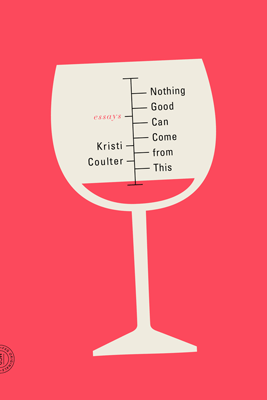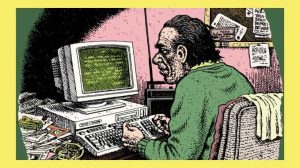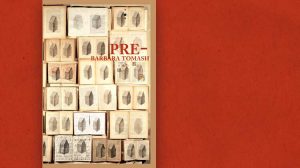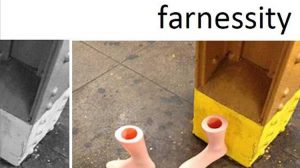Nothing Good Can Come from This by Kristi Coulter / MCD x FSG Originals / 978-0374286200 / 224 pg. / August 7, 2018
The best of addiction memoirs brings a sense of guilt with it. You read a well-penned piece about someone’s struggle with alcohol and then you slink away to your question and stare shamefully at your cold glass of 4:00pm wine. You dog-ear a page and then try to remember when the last time you didn’t sip a frosty beer after your day ended. It might not be intentional, but good writing about drinking, and the aftermath of doing so, paints the entire picture: the joys of a warm summer day with a six-pack and a friend and the darker summer evenings with a headache and another six-pack. They make you question your own decisions — good, bad or otherwise — because the author’s dissection of their own is so convincing, so laser-focused in its description you can’t help but relate somehow.

by Kristi Coulter
Kristi Coulter does this in Nothing Good Can Come from This, a collection of essays about (amongst many things) being a recovering alcoholic, a woman, a high-powered businesswoman, and a human being struggling with the daily weight of trying to be, well, all those things. It’s a scathing, stripped down look at her own issues and how she used alcohol to bury them, forget them and sometimes fuel them. It’s never less than brutally honest, oft times funny and just about everything you want from reflective non-fiction.
Coulter’s best skill as a writer is honesty. This isn’t said with irony or as some form of backhanded compliment: Coulter is exceptionally good at just saying what she means without the flowery bullshit so many authors try to gussy up their truths with. Nothing Good Can Come from This feels like Coulter has printed out an x-ray of her own anxious, shaky, sad insides and offered it up to every reader who doesn’t mind a healthy spoonful of discomfort with their belly laughs.
In “Enjoli” — an essay about why she and modern women have to remain “double-tanked” — she writes, ‘Because cool chicks are still women. And there’s no acceptable way to be a woman. And if there’s no acceptable way to be the thing you are, then maybe you drink a little. Or a lot.” It’s a simple statement, unadorned and after a sit-down with the first few of her essays, it’s what you come to expect — self-evisceration, but without condemnation, confession and razor-tongued observation with a point. What Coulter does with her honest appraisals isn’t judgment so much (though there is judgment), but rather admittance, acceptance and then fist-shaking encouragement that we can do better, we can embrace our faults and use them as stepping stones to clarity and action.
And because this is memoir, Coulter drags herself over the coals the hardest and the longest. This is a book that includes an essay — “Fascination” — describing not only the “x-ray penis vision” she developed but the emotional affair she had with a man but her telling her husband (John, a beloved side character in his own right) that she’d had an emotional affair with another man. These are pointed pieces of writing that aren’t so cold and mean that you can’t find a pocket of warmth, of understanding, of humor in each and everyone. “The idea,” Coulter writes in “Mammal, Fish or Bird”, “that my body automatically makes food for a fetus (like baking a cake just in case someone special drops by) and then gets rid of it through a hole every month doesn’t sound totally legit either, but it happens.”
Coulter isn’t especially broad on her subject matter. These are stories of her life and her struggle with alcoholism and how they tangled and untangled and she kept on living. It’s a book about the fact that life, as a thing, sort of sucks and you can drown out the suckiness with booze or expensive food or more booze, but eventually you’ll have to deal with the inherent suck and you’ll realize you’re better off for it. And there is a sense, lingering at the edges, of repetition, that maybe one more essay about too many glasses of wine on a business trip might be boring. But, it isn’t. Coulter manages to keep polishing the rock, keep drawing out new facets of insight and even softly lobbed advice, without redundancy or saccharine gloss.




Leave a Reply